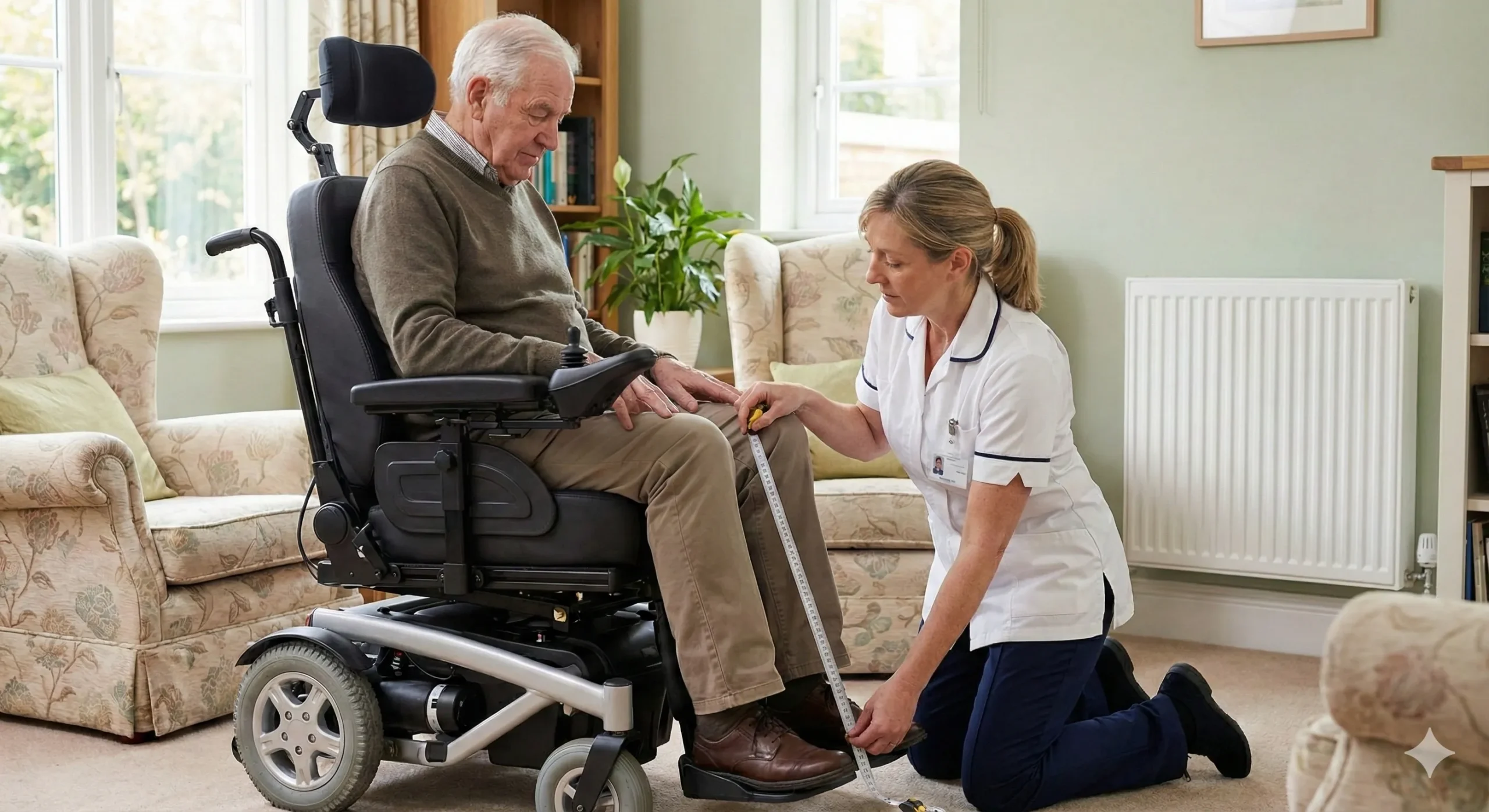Wheelchair & Specialist Seating Assessments
For individuals with limited mobility, the right wheelchair is not just a seat—it is the foundation of independence. However, a poorly fitted wheelchair or inadequate seating can lead to severe discomfort, the development of pressure sores, and a loss of function.
At Medella, our experienced Occupational Therapists provide comprehensive wheelchair and seating assessments in the comfort of your own home. Whether you require a standard manual chair or a complex prescription for a neurological condition, we ensure your seating solution is tailored to your unique physical condition and lifestyle.
Why a Specialist Assessment Matters
Buying a wheelchair “off-the-shelf” often leads to unmet needs. Our clinical assessment ensures:
- Protection: Prevention of pressure ulcers (bed sores) via appropriate pressure-relieving cushions.
- Posture: Correction of postural deformities to prevent pain.
- Function: The ability to perform daily activities comfortably.
Manual Wheelchairs
For those who can self-propel or require a transit chair pushed by a carer. We assess muscle strength and range of motion to ensure the manual wheelchair is lightweight, correctly sized, and configured to protect your shoulders and back during use.
Powered Wheelchairs
For individuals with reduced upper limb strength or fatigue management needs. We evaluate your ability to operate controls safely and assist with the specification of powered wheelchairs tailored to your environment, whether for indoor manoeuvrability or outdoor terrain.
Specialist & Comfort Seating
For clients who spend the majority of their day seated. We focus on custom seating solutions, including tilt-in-space mechanisms, lateral supports, and specialist backrests to maximise comfort and respiratory function.
A Detailed Clinical Approach

Our goal is to provide a precise wheelchair prescription that meets your long-term needs. We do not sell chairs; we provide the independent clinical justification to ensure you get the right support.
The assessment process involves:
- Physical Assessment: A full evaluation of your pelvic position, spinal alignment, and joint range of motion.
- Accurate Measurements: Taking precise body metrics to determine seat width, depth, and footrest height.
- Tissue Viability Check: Assessing skin integrity to recommend the correct pressure-relieving cushions.
- Environment Review: Ensuring the recommended chair works within your home (e.g., door widths, turning circles).
Following the visit, we provide a detailed report. For complex cases involving case managers or NHS funding applications, we produce the necessary clinical justification to support funding requests.
Trusted by Families Across Hampshire, Dorset & Wiltshire
We are incredibly proud of the 5-star feedback we receive from our clients on Google. These independent reviews reflect our team’s commitment to helping loved ones regain mobility and independence through compassionate, effective, and professional care at home.
Frequently Asked Questions
Why is a professional assessment necessary?
An inappropriate chair can cause long-term harm. Without support, gravity can cause the body to slump, leading to postural deformities and breathing difficulties. A professional seating assessment ensures the equipment supports your physical condition rather than worsening it.
Do you provide the wheelchair?
We are an independent therapy service. We provide the wheelchair prescription and specifications. We can recommend trusted suppliers for you to purchase from, or provide the clinical reports required for NHS wheelchair services or charity funding.
Can you help with pressure care?
Yes. A major part of the assessment is preventing pressure sores. We advise on the appropriate pressure-relieving technology, from foam to air-cell cushions, depending on your risk level.
Find Your Perfect Fit for Comfort & Independence
Ensure your seating meets your health and lifestyle needs. Contact us to book a specialist wheelchair and seating assessment with our expert OTs.
